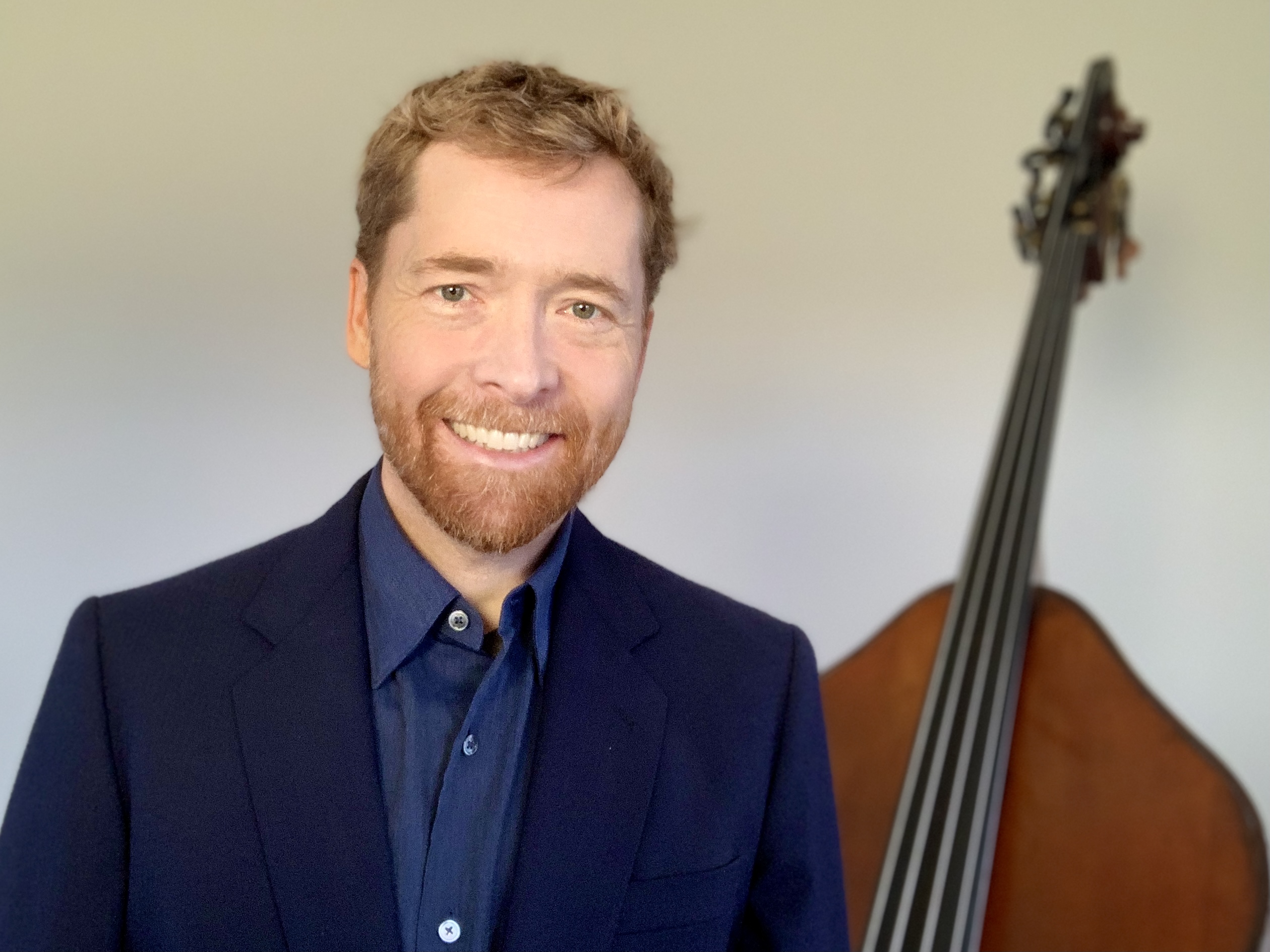Bio
Nicholas Walker is a Professor of Music at the University of Michigan, a Fulbright Scholar, and a Past-President of the International Society of Bassists where he served as the Artistic Director and Convention Host of the 50th and 56th Anniversary Conventions. He has diplomas from Rice University, the Nadia Boulanger Conservatoire de Paris, and Stony Brook University, where he earned his Doctorate in early music in 2004.
Walker is an accomplished musician who brings a broad range of training and experience to the double bass: American social music, European concert music, modern and baroque, solo, concerto, chamber, and large ensemble collaborations. His enthusiasm and aptitude transcend arbitrary musical boundaries, and his exuberant and versatile performances have made him a sought-after performer in many styles.
Before joining the faculty at SMTD, Walker taught for seventeen years at Ithaca College, preceded by work as a freelance musician and band leader in NYC, where he played with and learned from many Jazz and Afro-Cuban master musicians, including Illinois Jacquet, Hank Jones, Clark Terry, Frank Wes, Juan Pablo Torres, and Paquito d’Rivera. He has been featured on over two dozen CDs, and has frequently been heard on NPR’s Performance Today.
Walker is Acting Principal of the Cayuga Chamber Orchestra, and has freelanced with The Knights Chamber Orchestra, A Far Cry, the St. Paul Chamber Orchestra, Oslo Philharmonic, National Arts Center Orchestra of Canada, Handel & Haydn Society, St. Petersburg Chamber Philharmonic, Phoenix Chamber Orchestra, and exposed new music with Ensemble X and Ardesco. In addition, Walker is an inventive composer who features the bass in solo, chamber music, and improvisational contexts.
As an educator he has given master classes and performances at music centers and conservatories in the US and Canada, in Seoul, Amsterdam, the Hague, Oslo, Hanover, Leipzig, Rostock, Adelaide, St. Petersburg, Dublin, Belfast, and Beijing.
Professor Walker’s passion for educating students in the art and practice of music is fueled by the conviction that music can elevate the human condition and build meaningful bridges between individuals and groups of people – as music ignites the empathy sectors in the brain, which in turn release oxytocin, building intimacy, and leading us all to compassion, morality, and love.

